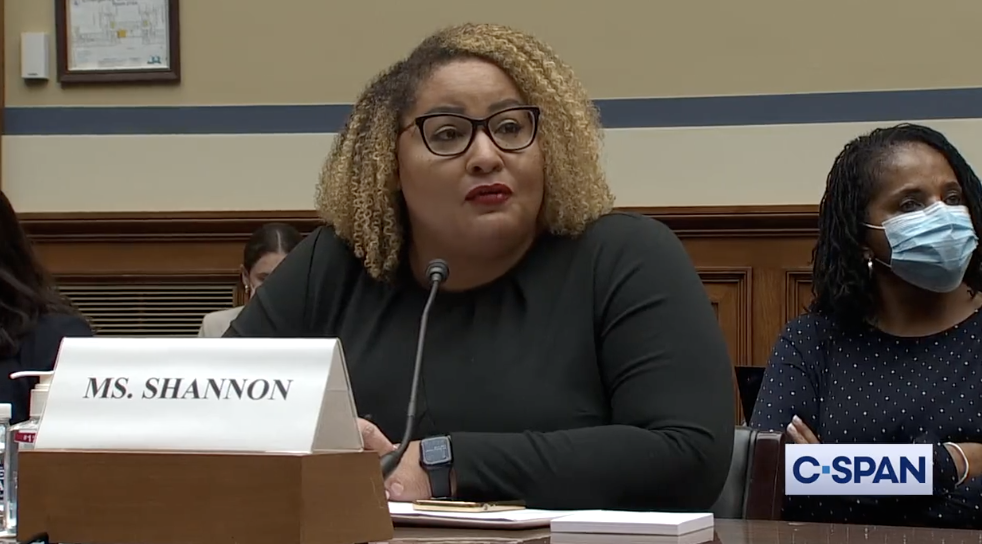
Caption
Georgia State Rep. Renitta Shannon (D) speaks before a U.S. House of Representatives abortion hearing on Capitol Hill on July 13, 2022.
Credit: Courtesy C-SPAN

Georgia State Rep. Renitta Shannon (D) speaks before a U.S. House of Representatives abortion hearing on Capitol Hill on July 13, 2022.
With the Supreme Court’s decision to overturn federal abortion protections, Georgia stakeholders on both sides of the aisle expect it’s only a matter of time before the state’s strict 2019 abortion ban take effect.
House Bill 481 — which bans most abortions around six weeks and often before a woman knows she is pregnant — is still held up by a federal appeals court. A judge has given both sides until the middle of July to outline arguments post-Roe v. Wade protections.
One of the most controversial components of the law is “fetal personhood” language, which makes an unborn fetus a “natural person” in Georgia code — a change that could have sweeping impacts in many different areas of state law.
GPB News previously reported that this could mean fathers may be on the hook to pay child support before the child is born. It also raises questions about charges in the homicide of a pregnant woman.
Republicans have doubled down on the idea after the Supreme Court’s ruling.
During a congressional hearing, Georgia U.S. Rep. Jody Hice — who unsuccessfully ran for secretary of state — applauded the court’s decision and brought up the issue of personhood.
“There is not an instance that I'm aware of of anyone giving birth to something other than a person," he said. "So if it is a person after birth, it by extension is a person before birth.”
The concept of fetal personhood is a new frontier for states in the ongoing battle over abortion rights across the country. This week, a federal court in Arizona blocked a law granting rights to fetuses, embryos and fertilized eggs.
Decatur Democratic State Rep. Renitta Shannon hit back at Hice’s comments that viability — whether or not a fetus can survive outside of the womb — of a pregnancy varies across individuals.
“No two pregnancies are the same,” she said. “So you can't just say across the board at what point any pregnancy would be viable.”
Shannon was a witness in the congressional hearing on Wednesday. She described a dire picture of inadequate access to reproductive care, especially for Black women and women of color, in a state that already has extremely high maternal mortality rates.
The Supreme Court’s decision “only exasperated a dire lack of access to care,” she said.
“Abortion is health care, as it is commonly necessary used to resolve miscarriages, ectopic pregnancy and dangerous health conditions,” Shannon said. “But there are many areas of the state where pregnant people must travel hours to receive any of this emergency care, thereby increasing the chance of maternal death.”
Shannon also said that Georgia abortion clinics are already shouldering the weight of the decision to overturn Roe v. Wade.
Abortion providers say they are seeing an influx of out-of-state patients, she said. And women seeking abortions are doing it earlier in pregnancy, under the pressure of the pending law.